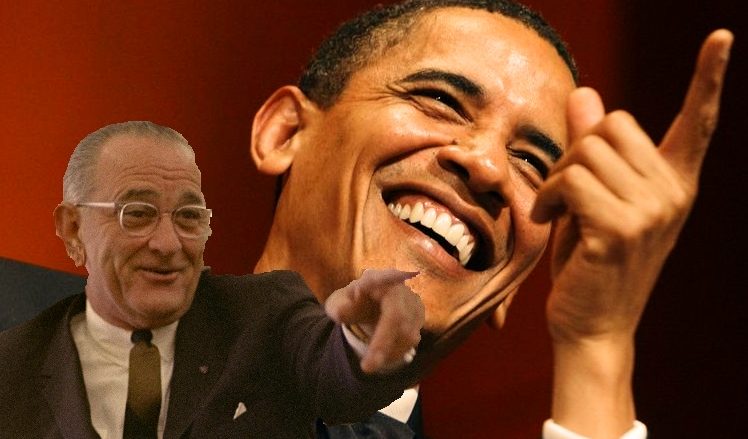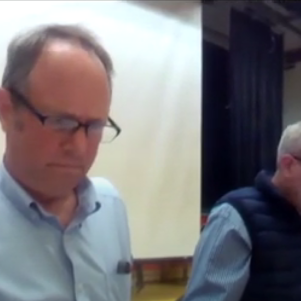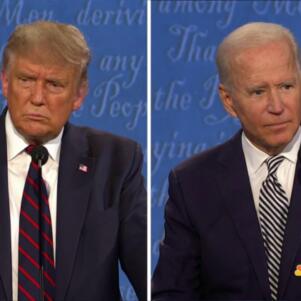Dereliction of Duty: Obama’s Foreign Policy Record Is As Bad As Johnson’s
By Robert Bradley | August 8, 2017, 12:02 EDT

In 1998, H.R. McMaster, the current National Security Advisor in the Trump Administration, wrote an explosive blockbuster about the origins of the Vietnam War. Dereliction of Duty: Lyndon Johnson, Robert McNamara, the Joint Chiefs of Staff, and the Lies that Led to Vietnam stemmed from his PhD. dissertation when he was a graduate student at the University of North Carolina. McMaster had a brilliant career in the U.S. Army, and his elevation to National Security Advisor is a boon to the nation.
In this explosive book almost 20 years ago, McMaster exposes how President Lyndon Johnson, Defense Secretary Robert McNamara, and General Maxwell Taylor hid the truth from the American people about the Vietnam War and conspired to neutralize the Joint Chiefs of Staff in the key decisions that led to the Vietnam War. The impeccably researched book is a searing indictment of President Johnson, showing how he lied repeatedly to the nation in 1964 in order to crush Republican challenger Barry Goldwater in the election that fall. His top lieutenant, McNamara, did everything possible to aid and abet Johnson in his deceit, hamstringing the Joint Chiefs and thus preventing them from figuring out the proper level of U.S. involvement in Vietnam.
The worst lie of President Johnson occurred in August 1964, when his administration introduced the Gulf of Tonkin Resolution after announcing that North Vietnam had attacked the U.S. Navy’s 7th Fleet. This resolution gave the president and his acolytes carte blanche to escalate the conflict in Vietnam to full-scale war in 1965. Congress passed the Gulf of Tonkin Resolution with near unanimity but was not told the truth — that the attacks by the North Vietnamese Navy never took place. The actions taken by the North Vietnamese Navy were in fact efforts to counter secret attacks by South Vietnamese and U.S. naval forces on North Vietnamese installations.
This book is a must-read for all who care about how U.S. foreign policy is made — especially where military force is contemplated or used. McMaster meticulously recounts how the Kennedy administration connived with South Vietnamese generals in the 1963 coup d’etat in South Vietnam, which led to the overthrow and murder of President Ngô Đình Diệm. He then chronicles the sorry foreign policy record of President Johnson in 1964 when he subordinated almost all policy decisions about Vietnam to his two paramount goals: his reelection in 1964 and the advancement of his Great Society programs.
A backward look over our shoulders at the eight-year record of the Obama administration shows the same pattern of dereliction of duty and deceit. Almost all of President Barack Obama’s foreign policy decisions were based upon two key factors: to show that the foreign policy steps his predecessor, George W. Bush, took were wrongheaded and even dangerous; and to gratify his supporters. His foreign policy decisions were rarely, if ever, based on U.S. national security interests and the interests of our allies. A prime example is his administration’s decision to do nothing to aid our beleaguered outpost in Benghazi, Libyain September 2012, which resulted in the tragic death of Ambassador Chris Stevens and three other Americans at the hands of terrorists. Our government did nothing to help the courageous Americans trapped there despite the fact that U.S. officials in Washington had feeds from drones over Benghazi throughout the entire engagement, and key Washington leaders watched hundreds of terrorists repeatedly attack the embassy and CIA annex.
The decision to do nothing was purely political: President Obama and Secretary of State Hillary Clinton had claimed that U.S. policy in Libya was working, but an attack on our diplomats there would show it wasn’t, so it had to be downplayed so as not to undermine the president’s prospects for re-election a couple of months later. Finally, to add insult to injury, the administration’s spokeswoman, Susan Rice, was trotted out to lie repeatedly to the press about what had happened.
President Obama’s unwillingness to use military force to back up his rhetoric made it clear to America’s friends and foes alike that America’s foreign policy consisted of empty words. When Russian President Vladimir Putin got the measure of the man, he decided in 2014 to annex Crimea and occupy two eastern provinces of Ukraine, knowing that President Obama would do nothing to help Ukraine. President Obama refused to even send military weapons to our Ukrainian allies.
When the United States met diplomatic resistance from the Iraq government in negotiating a Force Agreement (similar to our postwar treaties with Germany, Japan, and South Korea), President Obama walked away from the negotiations, wasting years of blood, tears, treasure, and sacrifice by so many Americans in Iraq. In doing so, he created a yawning vacuum which was quickly filled by ISIS. ISIS, initially labelled by President Obama as “a JV team,” quickly turned into the most fearsome and effective terrorists in the Middle East.
Perhaps the worst decision of President Obama (and Secretary of State John Kerry) was the Iran deal last year. It was such blatant appeasement of our most determined terrorist foe that the administration would never have been able to get the deal ratified in the U.S. Senate, which the Constitution demands; so the administration found extra-legal ways to circumvent the Senate’s role in ratifying the agreement. President Obama even concluded secret and verbal agreements with Iran, which were not disclosed to Congress or the American people.
The list of President Obama’s foreign policy debacles is too long for this article to deal with adequately, but history will judge his administration in much the same way that it judges President Johnson’s – a tragedy of lies and deceit which may well have enormous negative consequences for the United States in the same way that the Vietnam War did.
Robert H. Bradley is Chairman of Bradley, Foster & Sargent Inc., a $3.25 billion wealth management firm that has offices in Hartford, Connecticut, and Wellesley, Massachusetts. This column represents his personal views and does not represent the views of the firm. Read other articles by him here.











